In an era dedicated to the constantly evolving yet lucrative “influencer” social media culture, Natural Models LA/Muse NYC model Tabria Majors is carving her own path in a way that is not only intentional but captures the hearts of millions at the same time.
The Tennessee native took the world by storm with her viral-classic #BEYLLOWEEN, a 10-minute visual masterpiece where Majors recreated the legendary timeline of Beyoncé Knowles-Carter’s solo career.
Majors’ dynamic dance abilities and effortless beauty created a cultural moment that sent shock waves through all social media mediums.
It should come as no surprise that Tabria Majors is constantly making her mark in the ever-evolving fashion industry as well. Majors has stood center stage for brands such as Savage x Fenty, SKIMS, BooHoo, Fashion to Figure, and Swimsuits For All.
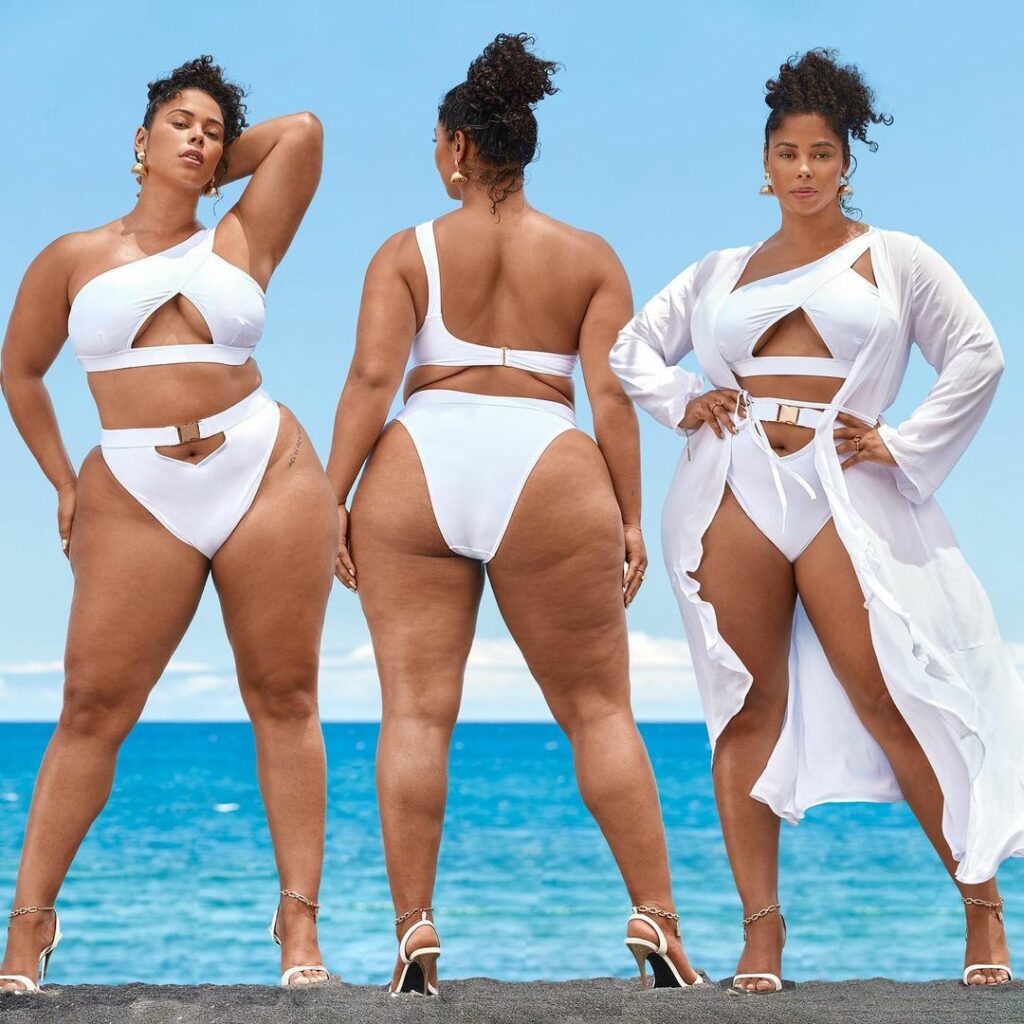
Outside of her successful career, Tabria Majors is a young Black woman dedicated to living her life in an honest yet progressive manner. She encompasses an effortlessly inviting, caring, and nurturing aura when she speaks of her colorful life at-large.
Over a Zoom meeting while battling COVID-19, Majors took the time to discuss a bit of her life story in regards to body image, inclusivity, and overall elevation of self. It is abundantly clear that this is Tabria Majors’ world and spectators are lucky enough to experience her brilliance as well.
Get To Know Tabria Majors
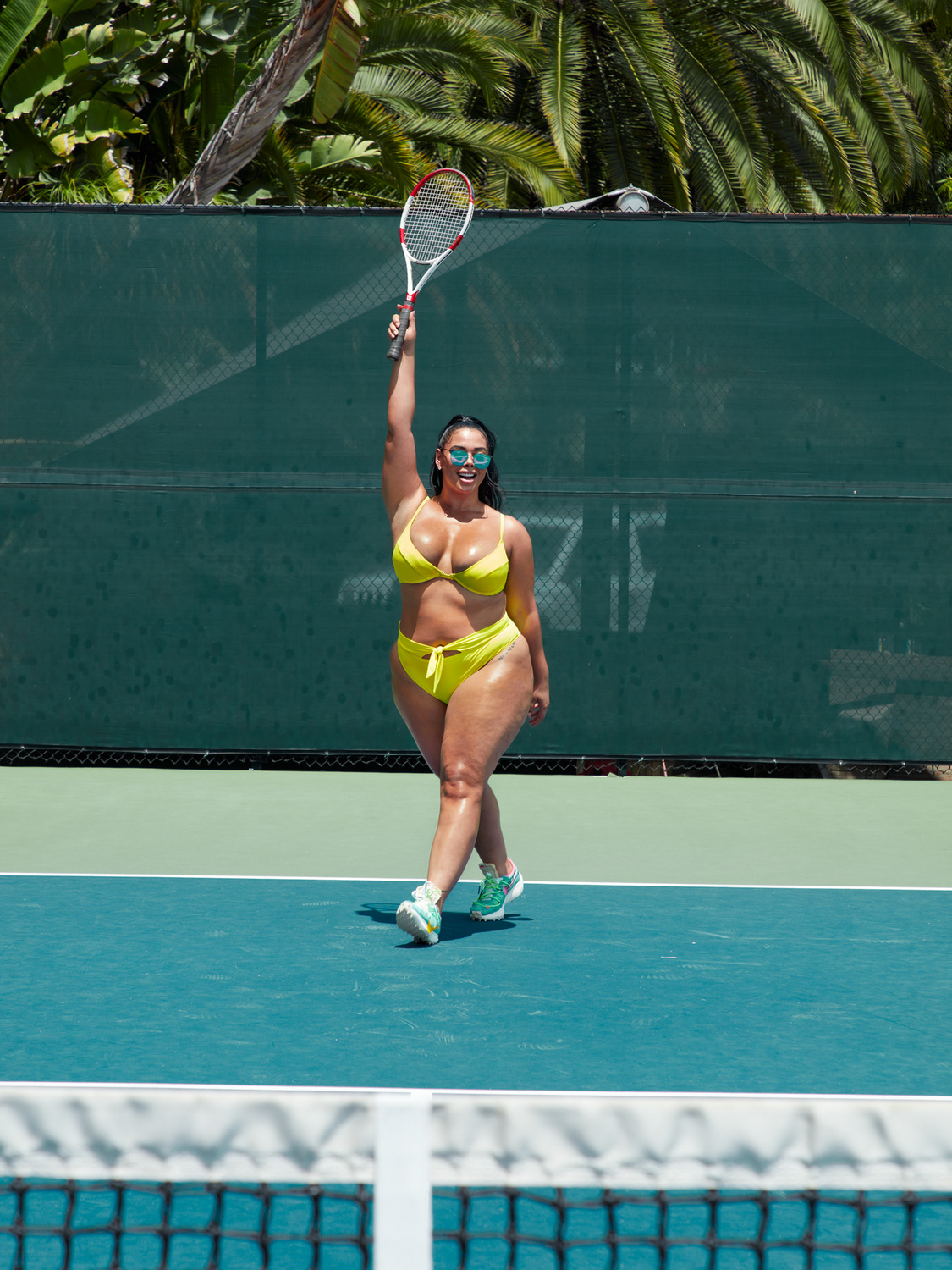
On Body Image in her Childhood
Tabria Majors is a natural-born leader when it comes to exuding grace, power, and self-assurance. However, Miss. Majors experienced the quintessential growing pains that most young people endure but through the lens of a suburban, predominantly white culture:
“When I was younger in middle school, high school, and even college, Looking back now (I don’t think that I realized it then), but I just had a very unhealthy relationship with body image in general. In regards to my body, I remember that I wanted to make myself so small and the antithesis of what I was. I wanted to be much thinner.
I remember having this girl who was one of my really good friends in grade school. She was a white girl. I remember just thinking; I wanted to look like her as much as possible. Everybody thought that she was super pretty and she was really popular. I was like, ‘Ugh. I wish that my lips were smaller. I wish that I had straight, blonde hair like she did.’
Tabria continues to reflect, “It was so toxic, and it’s something that I didn’t even deal with until much, much later in life (in the past five years, I’d say). I just thought that I was so big just because I was bigger than everybody else. I wasn’t as large as I thought I was in retrospect.”
Majors acknowledges the ultimate inclusivity shift that is happening currently within the media while extending grace to her younger self.
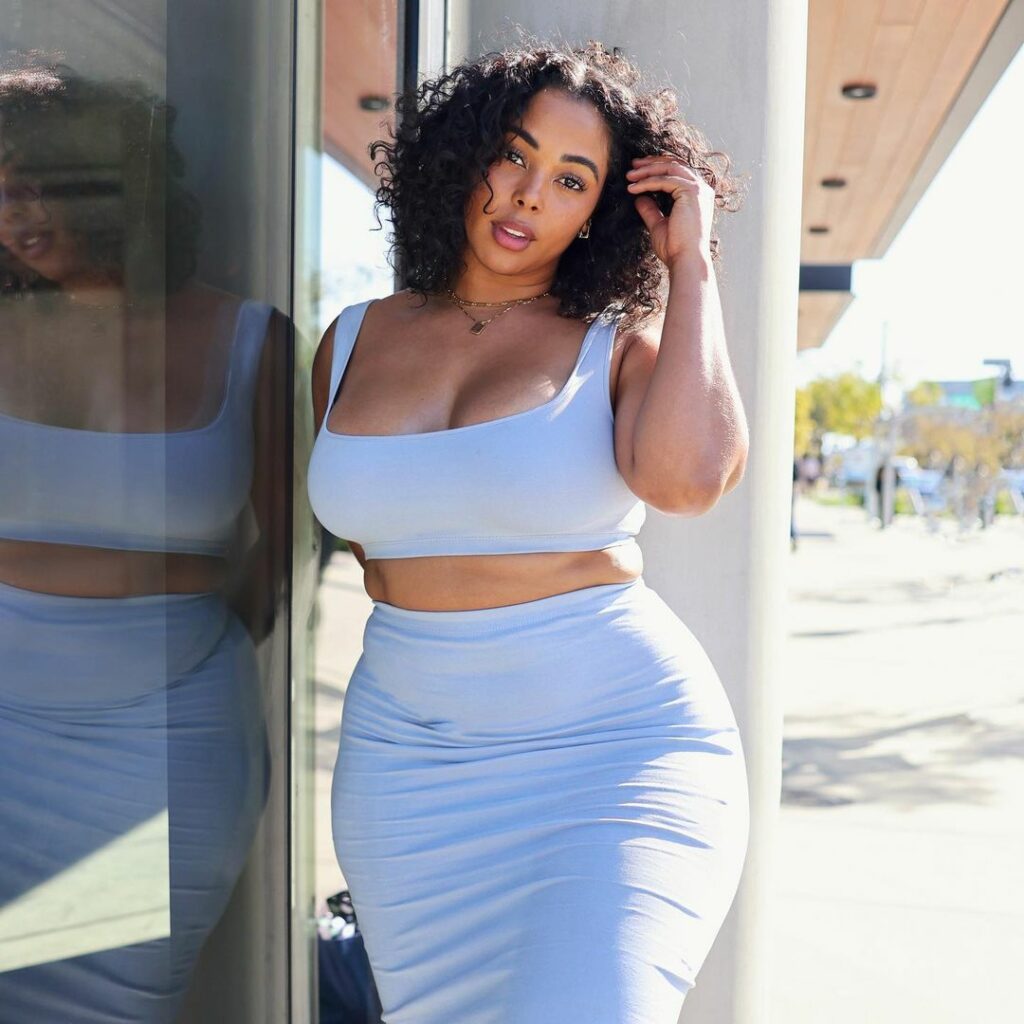
The model reminisced by saying, “It’s just crazy to think like that! I wish I could go back, appreciate who I was back then and embrace my body as it was because I was perfectly fine, you know? Obviously, the media plays a big role in that, and the kids that I was around played a big role in that.
It’s much better now, but it’s just unfortunate that millennials and everybody that preceded us went through that as a generation as a whole. It’s getting better, though!”
On Inspiration
The concept of “inspiration” as a whole is one that is limitless yet plentiful for young creatives alike. When it comes to the idea of overall representation, one can look outward to public figures but sometimes, the greatest inspiration exists within a personal, close-knit dichotomy.
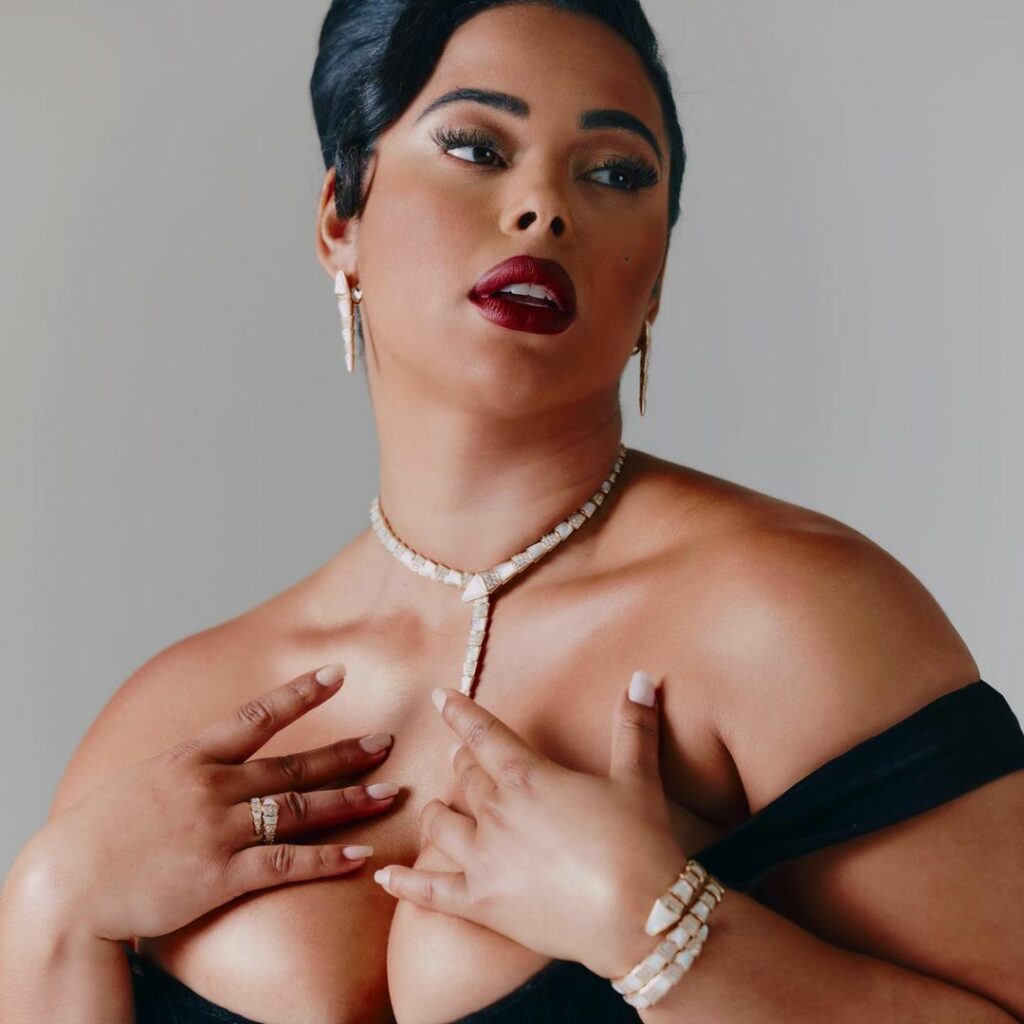
Tabria Majors explains, “I don’t know if I have just one person who is inspirational to me. This may sound cliche or whatever, but I really think that my friends with whom I surround myself with and the movement as a whole serves as an inspiration to me. One of my friends is Candice Kelly, and she had provided a wake-up moment for me. We always hate getting the question, ‘Why are you confident?’ I hate that question so much.”
An invasive question such as “why are you so confident?” is one that is inadvertently patronizing, but Tabria Majors rises to the occasion every time it is asked of her. “I always have trouble answering that, and I never knew why. I’m confident just because I am. I think I’m beautiful. I don’t see anything wrong with the way that I look, and I’m fine with that.”
When it comes to curvy/plus size representation across the board, Tabria extended her praise to at-home talents but also extended flowers to those who directly impacted Black culture as well:
“Obviously, I feel like a lot of people expect me to say Ashley Graham and I respect Ashley so much. I do look up to her. She paved the way for most plus-sized models.
I also think that Tocarra was incredible on America’s Next Top Model and she is so overlooked today. I just feel like she never got her flowers, you know? She really was the first plus-sized woman outside of Queen Latifah that I saw in a beautiful light, but I hated the way that the judges would discuss her on that show.
I feel like she [Tocarra] never got her shine, man. She’s still so inspirational, and she’s still so beautiful. She looks incredible, and she is amazing.”.
On the “Body Positivity” Conversation
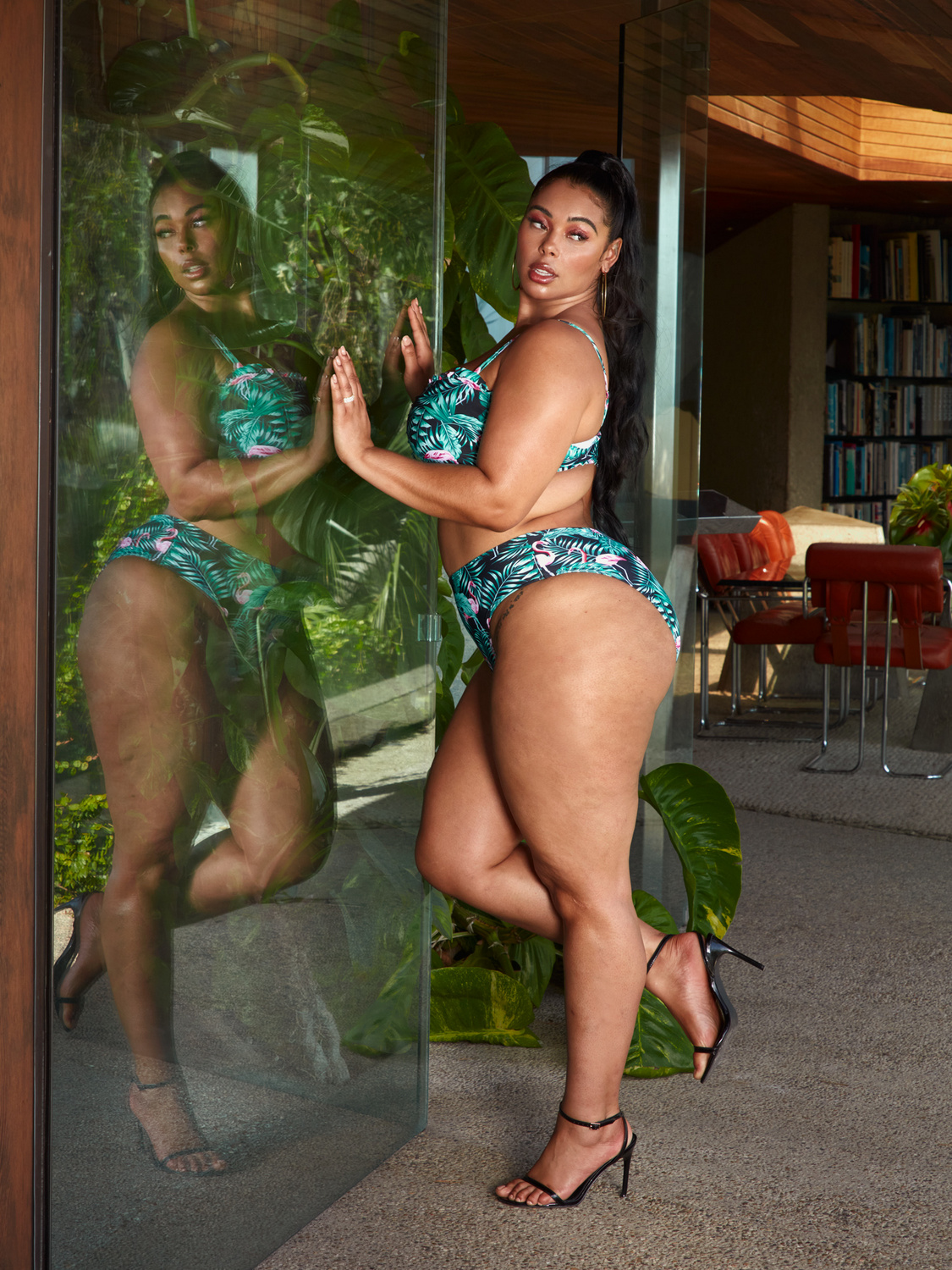
The “Body Positivity” movement is one that subjectively ranges on a wide spectrum of overall acceptance of self. However, it is completely fair to acknowledge the background of the “body positivity” terminology in addition to the overall conversational shift during the past few years.
When asked about the cultural movement that has inadvertently given her much-deserved praise, Tabria Majors took the difficult yet nuanced route of diving into “body positivity” head on:
“It [body positivity] means being accepting of all body shapes and sizes. Any type of body there is out there? They should be accepted, praised, represented, and shouldn’t be ostracized. I feel like it’s taken a turn – I don’t want to say a turn for the worst.”
Letting her know it was more than okay to be honest about the topic, Tabria Majors continues, “What it (body positivity) is now, isn’t what it was initially meant to be. I feel like especially fat Black women are excluded in the body positivity conversation. Now, it’s being co-opted by what we call in modeling ‘mid-sized (sizes 6 to 10)’ people.
I do think that it’s great that there’s more typical sized bodies in media/fashion.[But] We’re still not seeing plus-size, or I just heard the term, ‘super plus’ for the first time the other day.“
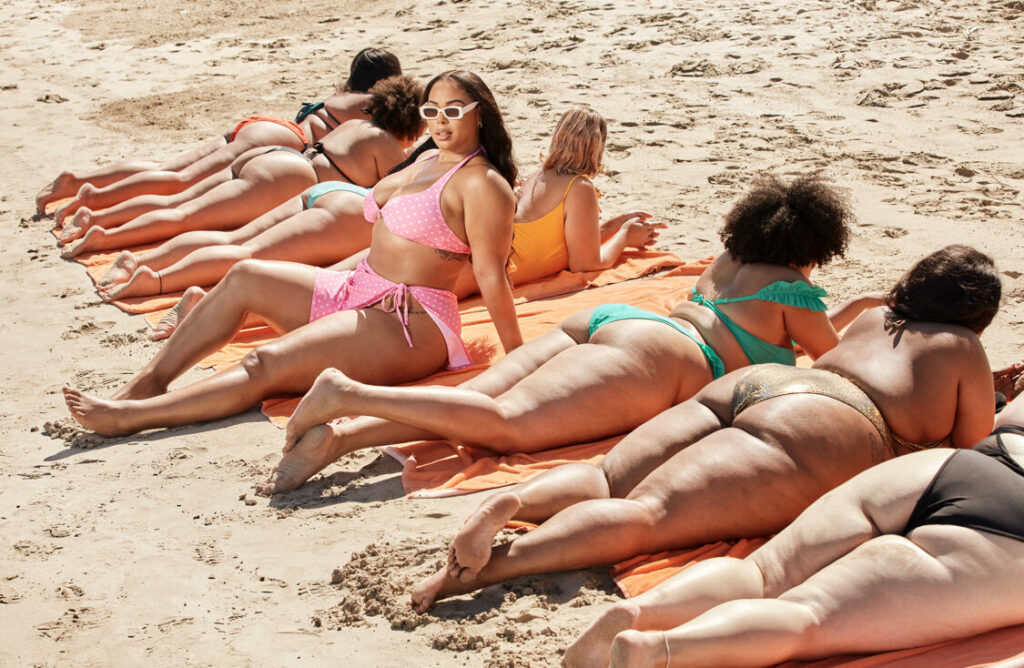
“I’m talking about anyone who is over size 16 and up. I feel like we’re not seeing enough of those actual plus size or actual fat people represented in the media as much as we see others.
A lot of brands will claim that they’re ‘inclusive’ or that they’re ‘body positive’ because they included someone who is a size 8 in their campaigns. It’s just not the truth. It’s the furthest thing from the truth. This is the part of ‘body positivity’ that I don’t agree with, and I feel like that is what it has become now.”
On Success and Sacrifice
Tabria Majors is considered by many as one of the progressive leaders within the realm of curvy/plus size representation through her artistry. When asked about her influence that positively shifts the fashion culture, Majors touched on the hypervisibility and personal sacrifices that she has had to make in order to acquire this level of success:
She explains, “Honestly, it’s an overwhelming feeling because I feel so much pressure from it. I always feel like there’s more that I can be doing. It’s always challenging for me to think of, ‘Ok. How can I do more? How does it make sense?’
I also have a problem with being liked. *laughs* I don’t want to step on anyone’s toes. I don’t want to offend anybody. Having a larger platform puts you in that spotlight, and it’s very overwhelming for me.“
I could only imagine!
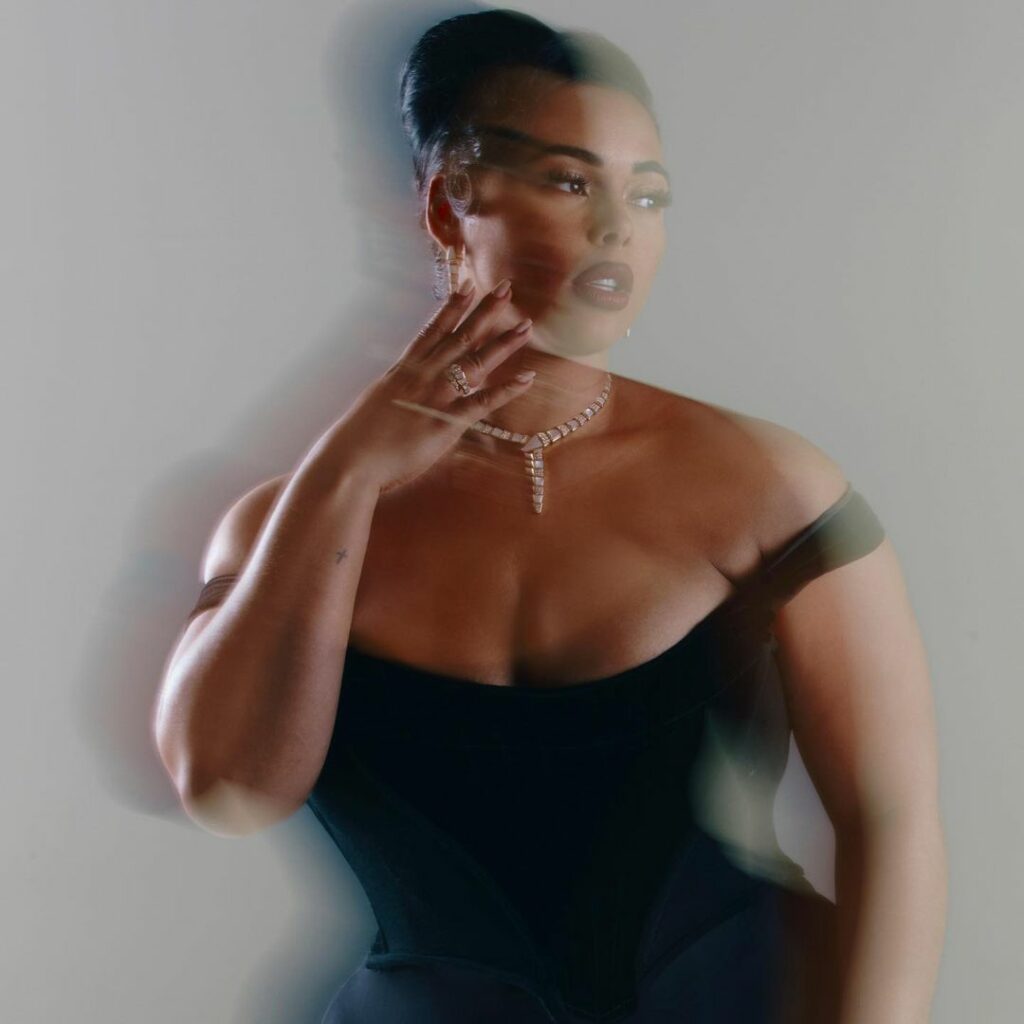
“Most of the time, I don’t even engage with Instagram as much as I should. I want to create more conversations with people but people are really mean. They also feel entitled to know everything about you. My relationship with social media has changed so much the more attention that I’ve gotten. I’m appreciative of where I’m at and I do want to use my platform responsibly.
I also want people to realize that I’m human and I’m just like everybody else. It’s definitely interesting. I’m grateful for sure. I plan on turning out a lot of personal projects that aren’t even work-related. They’re just things that I’m passionate about doing. I hope that people can just see me and appreciate me in that way by just putting out my personal stuff. “
One Word of Advice
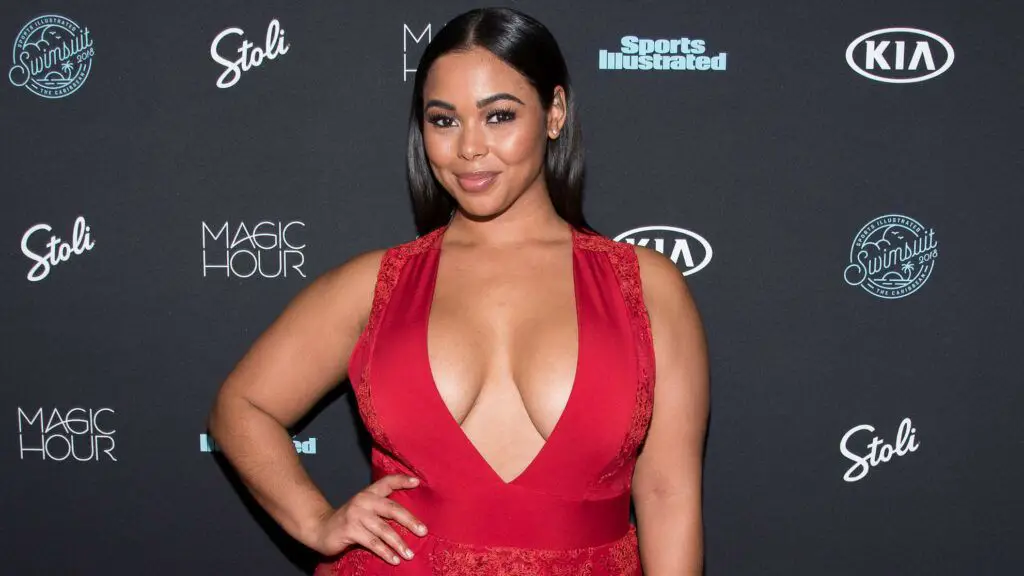
Acquiring success in the fashion industry is not an easy feat to conquer – especially as a young Black person who is breaking barriers by solely existing in an honest, relatable way. There is the overall progression of transformation that goes along with becoming an individual whose job is to create iconic moments in time.
In Tabria Majors’ case, the idea of “loving oneself” in this society is not as simple as proclaiming it, but to actually feel that compassion for self on the inside:
“I saw this trend on TikTok and it was almost the same as this question: How do you love yourself?
The general consensus was,’ I just don’t care. F*ck them. I don’t care what anyone thinks.’ It’s so much easier said than done especially when you almost see the same type of people saying that. You only see attractive people saying things like that. Obviously, you don’t care… You’re pretty. [For] somebody who doesn’t fit into those societal norms and isn’t conventionally attractive – How can I just tell them not care?” says Tabria.
“We always notice the one negative comment out of all of the positive ones. They resonate with us because it’s triggering us in some way. It’s hard for me to tell people just to not care. I can’t even not care all of the time and I have so many people that support me. I think that you have to get to a place where you yourself are comfortable with yourself wholly.”
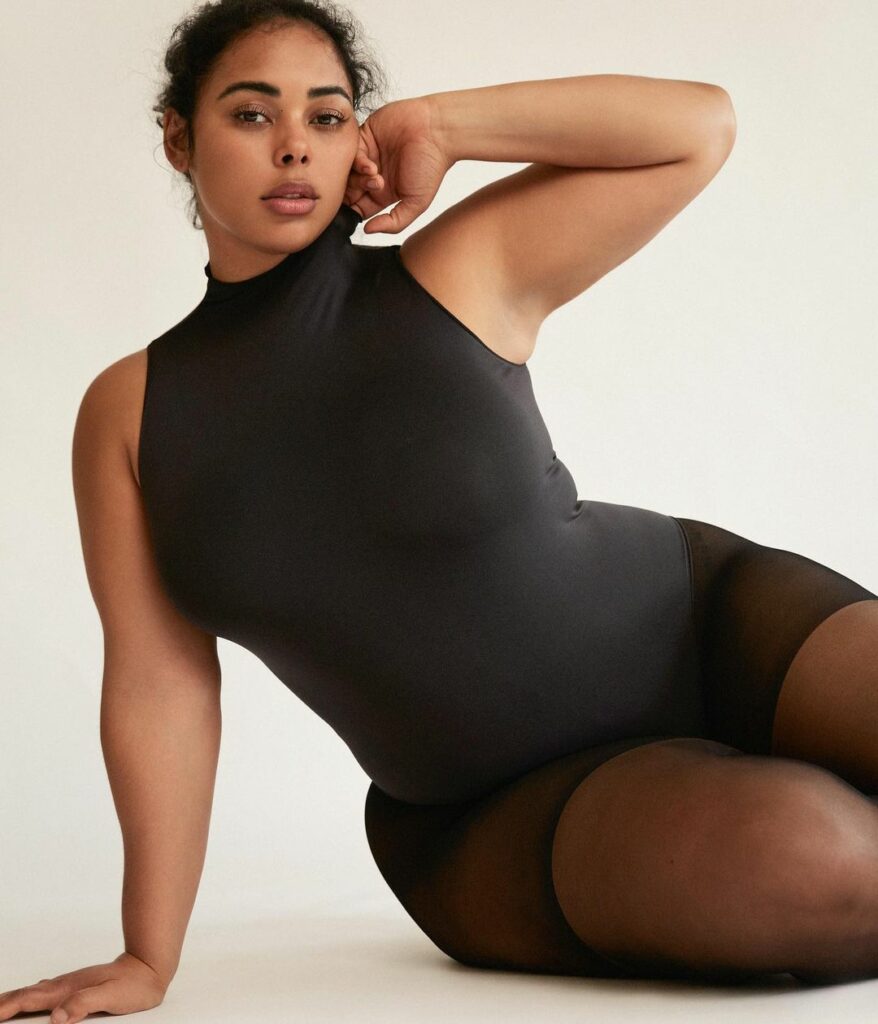
Tabria continues, “You really have to have a real conversation with yourself and understand why you’re not happy with yourself. I don’t think there’s anything wrong with changing things about yourself, but you need to analyze why you want to change yourself.”
One of Tabria’s greatest solutions to spiritual freedom is to have a genuine conversation with one’s inner child (aka the subconscious part of one’s brain):
“A lot of issues that we have stemmed from childhood trauma. We need to address those issues that we’ve had as children and deal with our ‘inner child.’ That shit is real. I’ve always written that off as BS.
In the past year and a half to two years, I really started digging deep and analyzing what issues that I presently have that I may project onto others or that I just have with myself. Why do I feel this way? Why do I act this way?
100% of them were as a result of how I was raised. It’s really just doing the work on yourself because if you’re unable to address why you don’t love yourself, you’re never going to progress in your self luxury.”
Want more Tabria Majors?
Check out her latest swim collection with Fashion to Figure, which just launched June 3rd!
What did you think of this intimate, one on one interview with the plus size bombshell?
*This interview has been edited and condensed for clarity*

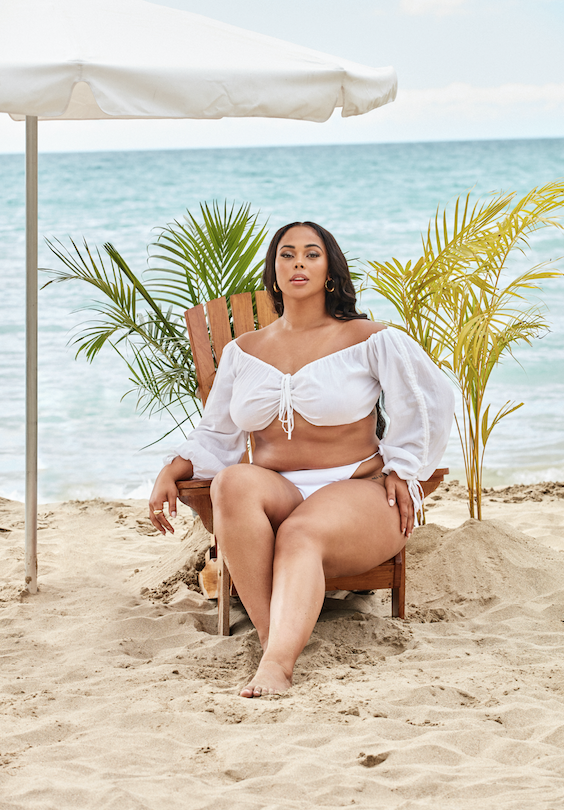

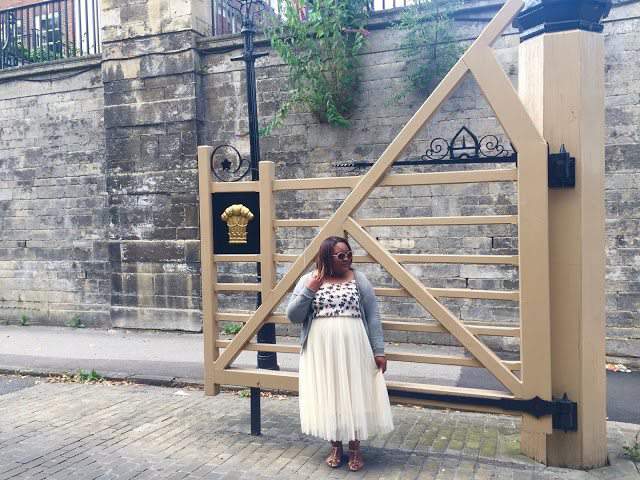
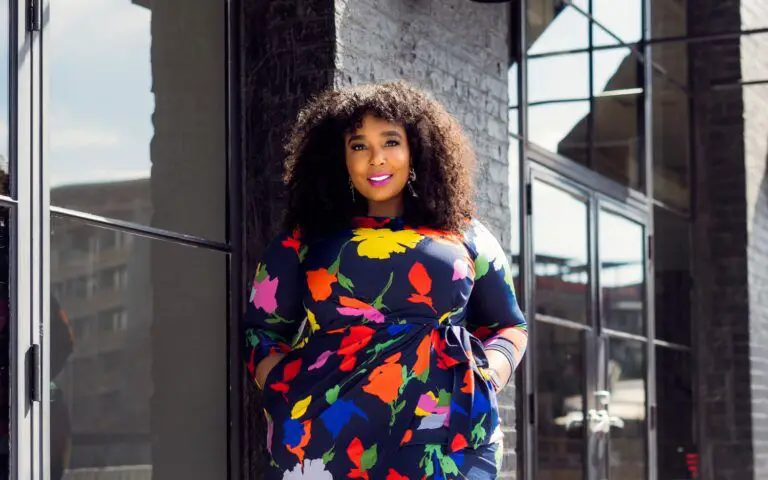
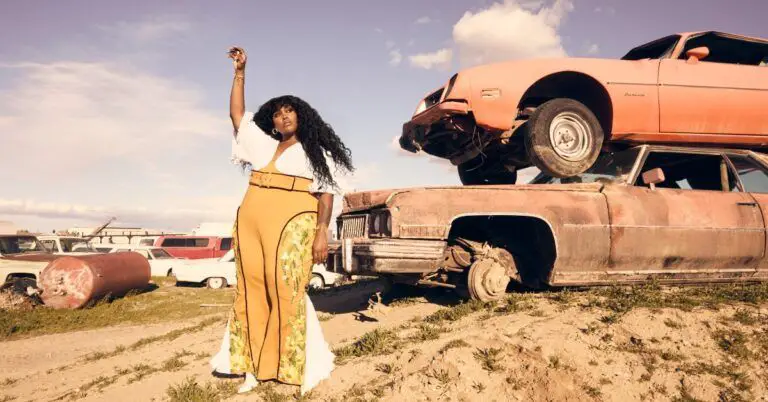
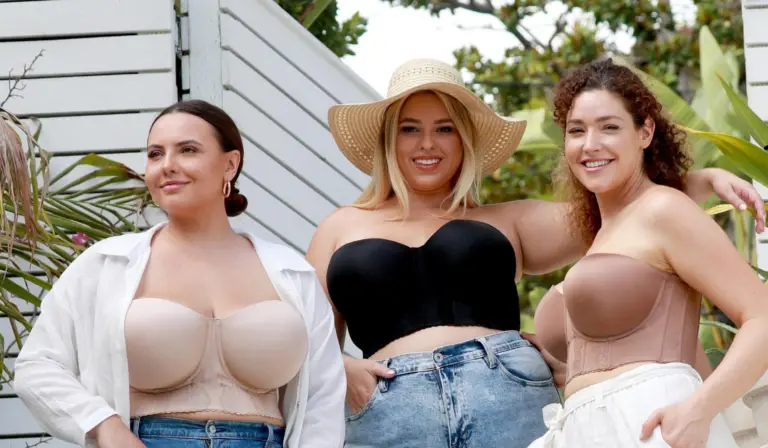
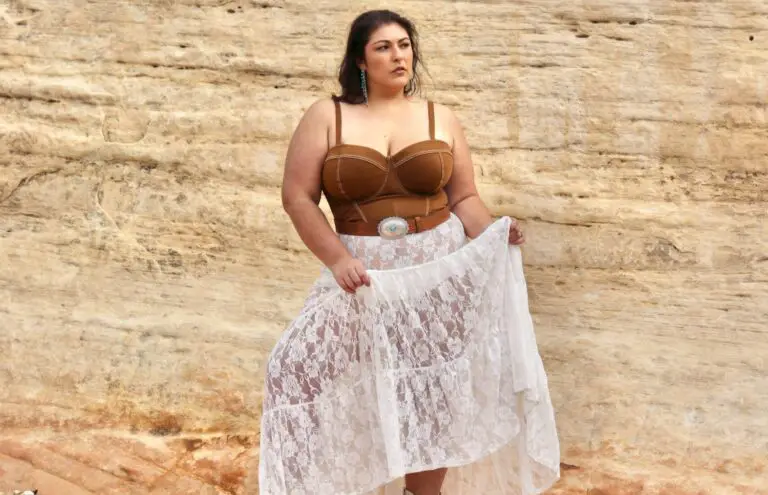
That interview was so helpful. And watching Tabria’s Beyonce video really helped me to see my own body in a more positive light. I’ve been able to be more accepting of myself because of seeing beautiful bodies like hers in the media. Thanks Tabria and TCF!!